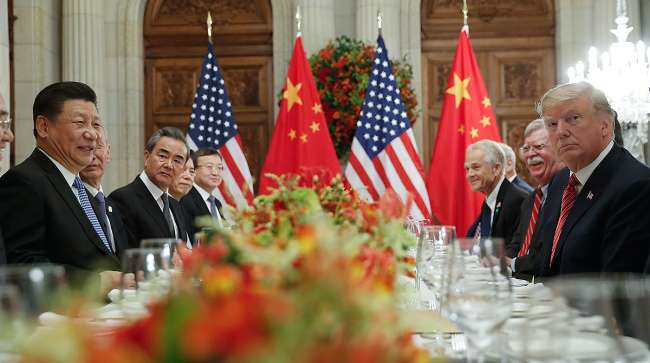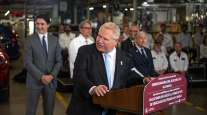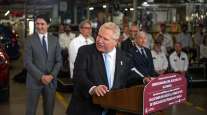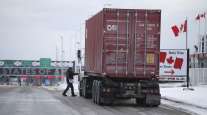Senior Reporter
G-20 Summit Brings Two Significant Trade Developments for Trucking Industry

Steps taken by the Trump administration at last week’s G-20 summit in Buenos Aires, Argentina, could have significant effects for the trucking and port industries as the president continues to revamp global trade policy for the United States.
President Donald Trump on Dec. 2 announced that the United States and China will suspend for 90 days a planned $200 billion increase in tariffs on goods shipped between the two nations that is set to take effect Jan. 1. Millions of products arrive in U.S. ports annually and are then transported by trucks.
Trump said the extension gives him and Chinese President Xi Jinping additional time to negotiate. In a series of tweets on Dec. 3, Trump said his “very strong and personal relationship” with Xi is beneficial and stressed that the pair can “bring about massive and very positive change, on trade and far beyond.”
Many of the nation’s largest ports have been reporting record container volume as shippers rushed to get those items into the United States or sent overseas before the higher tariffs took effect. In October the Port of Los Angeles — the nation’s largest port — had the busiest month in its 111-year history.

Mexico's Enrique Pena Nieto (left), President Donald Trump and Canadian Prime Minister Justin Trudeau sign the United States-Mexico-Canada Agreement. (Sarah Pabst/Bloomberg News)
Separately, the fate of the new, wide-ranging trade treaty among the United States, Canada and Mexico will soon be in the hands of lawmakers in all three nations. Trump, Canadian Prime Minister Justin Trudeau and former Mexican President Enrique Pena Nieto signed the agreement Nov. 30 in Argentina. A new Mexican president took office Dec. 1.
When the USMCA, as it is called, was announced in late September, American Trucking Associations praised the proposal, noting that the nearly 25-year-old North American Free Trade Agreement was in need of updating.
Trucks move nearly $385 billion in goods between the U.S. and Mexico, and $336 billion in trade between the U.S. and Canada.
“This is something we have been pushing for and we’ve been very involved through the whole process,” said Bob Costello, ATA chief economist, in a Dec. 1 interview on Transport Topics Radio on SiriusXM Radio. “The next challenge is getting it through Congress. I’ve spent time up there (Capitol Hill) talking about the USMCA and the importance of it. It’s not going to be easy, but I do think it is different from when the first NAFTA was passed. I think everyone, nearly everybody, whether they have an R or a D after their name, realizes this is important for the economy and certainly for trucking. I think at the end of the day we’ll get it passed.”

In October the Port of Los Angeles — the nation’s largest port — had the busiest month in its 111-year history. (Port of Los Angeles)
Stephen Laskowski, president of the Canadian Trucking Alliance, expressed his support for the USMCA when it was announced five weeks ago. The agreement includes a change in Canadian regulations that will allow greater access for U.S. dairy products, eggs and poultry.
For Canada and Mexico, the agreement also updates rules regarding data sharing and protection of intellectual property, and both countries agreed to raise the minimum shipment value of small packages shipped across the border that are subject to duties or taxes, a change that is expected to spur more e-commerce.
Another provision gives the United States the right to limit access for longhaul truck drivers from Mexico.
Costello said he is pleased the USMCA maintains a NAFTA mechanism for dispute resolution but does not include a proposal pushed earlier by the U.S. to automatically terminate the agreement after five years.
The agreement does include a 16-year sunset provision, but the three countries will meet every six years to decide whether to renew the pact, which potentially keeps the agreement going in perpetuity.
Staff Writer Daniel P. Bearth contributed to this story.




